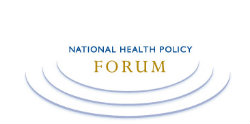 To outsiders, Washington D.C. is a mysterious place filled with smart and hardworking people. But it is very hard to know who has influence, whose opinion is respected, and where to start. It’s also a place where young staffers have incredible responsibilities to carry out the ideas and intentions of their elected bosses, but not a lot of background or time to master issues.
To outsiders, Washington D.C. is a mysterious place filled with smart and hardworking people. But it is very hard to know who has influence, whose opinion is respected, and where to start. It’s also a place where young staffers have incredible responsibilities to carry out the ideas and intentions of their elected bosses, but not a lot of background or time to master issues.
Who would have guessed six or seven years ago that the young staffers of the junior senator from Illinois would have been elevated to positions of enormous influence by their boss’s election to President? For us at the John A. Hartford Foundation, one way to help navigate these mysteries and to be sure that the issues and work of the grantees we support are communicated to policymakers is our relationship with the National Health Policy Forum.
Over the years—31, to be exact—the Hartford Foundation has funded 10 grants totaling more than $6.4 million to the National Health Policy Forum (NHPF or “the Forum”), located at George Washington University in Washington, D.C., and headed by its founding director, Judith Miller Jones. In the early days, the Hartford Foundation funded Judy and the NHPF to further the foundation’s work under its short-lived Health Care Cost & Quality initiative. A few years after that initiative ended, Hartford again commissioned Judy and the NHPF to further the Foundation’s current mission and work in aging and health care issues, which it has been doing since 1997 with six grants worth more than $5.7 million.
 The Forum is a non-partisan organization that provides information to congressional staffers, federal agencies, and a multitude of other stakeholders in a variety of health policy areas including aging, Medicare/Medicaid, and workforce. The Forum does this in various ways, including trainings, meetings, papers, issue briefs, and other publications.
The Forum is a non-partisan organization that provides information to congressional staffers, federal agencies, and a multitude of other stakeholders in a variety of health policy areas including aging, Medicare/Medicaid, and workforce. The Forum does this in various ways, including trainings, meetings, papers, issue briefs, and other publications.
The Foundation’s funding for this most recent grant award—as well as that of other partners—will focus on supporting its current operation as well as creating four aging-related meetings and producing a paper for each year of this three-year award. The Forum will also conduct “orientations” for new congressional staffers at the start of each new Congress in two of the three years of the grant.
Hartford support will equal approximately 11 percent of the Forum’s total annual budget. The information produced by the meetings and papers are meant to be disseminated and shared with its usual audience of congressional staffers and policymakers in two of the branches of government as well as other federal agencies, an audience that Hartford is very interested in reaching to further its own mission and goals in the aging and health care fields.
In response to the passage of The Patient Protection and Affordable Care Act (ACA), the Foundation has requested that the Forum focus on two main areas found to be of the utmost importance and crucial to the care of older Americans: the Medicare payment structure and an innovative, cost-effective, interdisciplinary, and multi-site care delivery system using proven models of care that had their start with Hartford funding.
The most recent briefing hosted by The Forum with Hartford funding, called “Pursuing High Quality Care for an Aging Population,” brought together three experts in the field of both aging and health care delivery—two of whom have been grantees of the Foundation.
Two of the presenters, Joanne Lynne, MD and Sharon Foerster, LCSW—a Hartford grantee through the Practice Change Fellows program—talked about the need for localized, integrated care in communities that do not already have this cooperation between health care and social services to promote better health outcomes for seniors. A third presenter, David B. Reuben, MD—a longtime Hartford grantee at UCLA—talked about the need for older patients and their physicians to discuss strategic planning regarding one’s own health care and the trade-offs between care and quality of life that may come out of such a discussion. Information on this panel briefing can be found at the Forum website.
This is just one of many sessions, papers, and issue briefs that Dr. Reuben and other longtime Hartford “superstar” grantees have contributed to the Forum’s collection of works—all of which can be found on its website www.nhpf.org . For example, Eric A. Coleman, MD, of the University of Colorado at Denver—whose Care Transitions model of care delivery among multiple sites is now endorsed by the ACA—presented at one session and his work was the focus of another.
A session brief presented by Michael Schoenbaum, MD, focused on the IMPACT model of depression care delivery in primary care settings developed by another of the Foundation’s stars, Jürgen Unützer, MD, of the University of Washington in Seattle.
These are just a few examples of what The Forum has to offer. Over the years, the Foundation has funded the production of countless meetings, briefings, papers, and orientations out of the thousands that The Forum has in its vast library of non-partisan literature to promote the health of all Americans.
The easiest way to access most, if not all, of this information that it has acquired over its 40-plus year history is through its website. Check it out. You’ll be amazed at what you find there.
